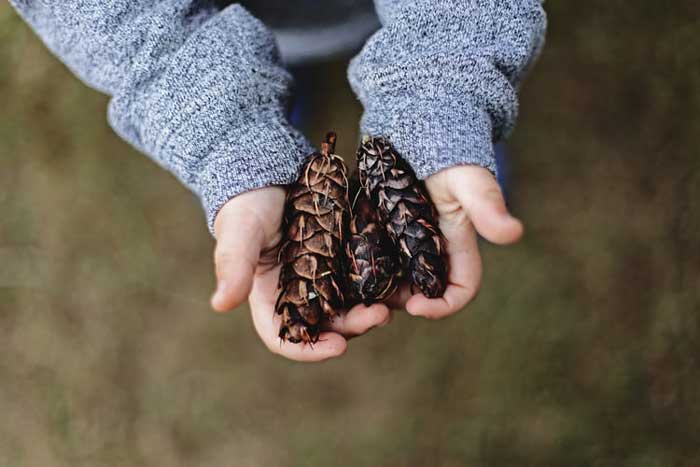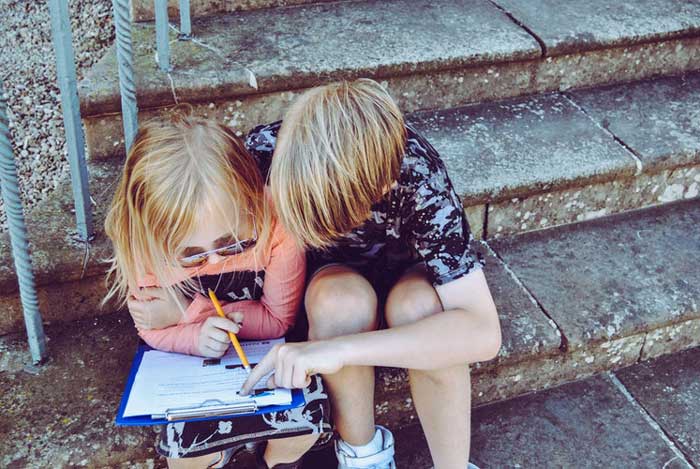How to Teach Your Toddler How to Share
As toddlers go on growing, they begin to regard themselves as personalities who are discovering their relationship with objects that come their way. They start to develop the understanding of owing things, but it isn’t quite clear to them that things have different owners. They try to lay claim on objects that attract them, and exclaim “mine!”
 Meanwhile, children of this age haven’t yet grasped such important notions as the give-and-take principle and the concept of time. At two they don’t understand what you mean when you say “you will have the toy in about ten minutes.”
Meanwhile, children of this age haven’t yet grasped such important notions as the give-and-take principle and the concept of time. At two they don’t understand what you mean when you say “you will have the toy in about ten minutes.”
You will have to wait until they turn four – about that time they begin to recognize other people’s viewpoints, and you will be able to use approaches like “would you like it if your playmate has grabbed all the toys and refused to share with you?” But it will come later – right now your toddler doesn’t really take in the very word “share.”
Adults may not understand the fact that simple words like “share” can be confusing because they mean different things in different situations. To share a toy bear means play with it passing it to one another, while if they share a cookie they have to yield half of it and never get it back. All this is greatly confusing for the little one, and you can’t be sure that they get a clear understanding of what you really mean and what it will come to.
Begin early
As soon as your toddler can hold a toy, they can be taught sharing. Take the toy from them and give it back repeating “your turn, now my turn.” Taking turns is the basic idea behind sharing.
Set an example by your own model behavior
We are children’s main teachers, so your best way to teach them sharing is to share with them. When eating nuts, give some to your child and explain that what you have done is sharing and you love it. As you set to playing with blocks, share a few with a family member.
When doing this, comment how easy it is to share, it’s fun and people feel good when they do it. Having set an example, drop the subject without referring to the child’s actions. If you repeat the procedure from time to time it will make a great reminder and set the kid on the right path.
This way the infant begins to realize that sharing is something all people do, not only children. It is a natural thing to do and it is an important social skill.
Put it into a game
If you take it up in earnest, devise a game for kids of three that doesn’t imply one winner only. Competitive feeling is all right, but it isn’t supposed to come in until children are old enough for school.
Involve a timer to teach time spans
With a desirable toy, have a timer handy. When it’s time to pass the toy to a friend to play with, the timer will ring, and when it rings again, the toy changes hands. It is the way to teach kids that giving things away doesn’t mean for ever. Better keep the playmate’s parents aware of what you will be doing so they could play along if necessary.
Make your praise special
Of course you can just say what a good child he was for having shared, but it would be far better if you did it descriptively – like reminding them how happy their friend looked when he got the car to play with. This detailed approach will ensure a stronger imprint on your child’s mind.
If your kid failed to share, don’t chide them
You know that young infants don’t really grasp the notion of sharing. It is the period in children’s lives when they go for everything within their reach and handle it if it were their own. It’s quite a normal thing to do. You wouldn’t be feeling too happy if somebody showed up and laid claim on your belongings. So aren’t the kid who flatly refuses to yield their stuff.
Let’s look into the case when the infant just won’t give up a toy although a lot of time has passed. Begin with commenting on the fun they’re having playing with the item. Say that you would also find it hard if you were to yield it. Having emphasized the point, encourage the child to give over the toy to the playmate explaining that it will come back to her soon.
Still, the kid can persist in holding on to the toy. Step back and say that they don’t seem to be ready to share because they want to play some more. Then, ask them to tell you when they are through playing and can hand the toy over. If you think it will work better, tell them you were disappointed. Chances are, the kid will soon give up the coveted toy.
Don’t insist on possessing
Some kids acquire a habit of yelling out “Mine” whenever they see another kid aiming to grab their toy. It can be extremely unnerving. To weaken the habit try to never say whom a thing belongs. It doesn’t only go for toys. Children often reach for remote controls. Don’t stop them by saying “It is not yours to handle” – rather, put it like: “People never play with this,” or “It is a remote control and its place is on this table.”
To sum it up
True, at a very young age refusals to share are a normal thing – nevertheless, it is upsetting and you will want to change it. You can certainly find ways to direct your child to the right attitude.
Never forget to praise them when they do share and make a regular practice of sharing within the family. Alter the way you refer to personal and common objects. Show them sharing exemplary behavior without correcting theirs.
By introducing these undemanding methods you may ensure a more decent behavior on the part of your child in public places and teach them to share when they grow old enough to really dig the notion.



